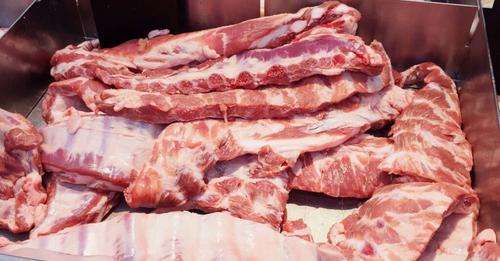
-
Validity of meat import clearances back to 60 days
-
Sanitary and phytosanitary clearances for imported meat are back to their 60-day validity
-
Easing supply chain and logistical restrictions compelled the Department of Agriculture to cancel the temporary 90-day validity
-
DA Administrative Order No. 11-2022 immediately revoked AO 02-2022, which temporarily extended the 90-day validity of SPSICs in January
-
The global COVID situation has subsided in many parts of the world, resulting in an easing of supply chain and logistical restrictions, according to DA AO 11-2022
The validity of meat import clearances is back to 60 days from the previous 90 with the easing of supply chain and logistical restrictions, according to the Department of Agriculture (DA).
DA Administrative Order No. 11, series of 2022, was signed and took effective immediately on May 23, revoking AO 02-2022, which in January extended the temporary 90-day validity of sanitary and phytosanitary import clearances (SPSIC).
DA last year said the COVID-19 pandemic and the drop in container vans supply presented shipping and other logistical difficulties, prompting stakeholders to request an extension of the validity of SPSICs.
But now the current global COVID situation has subsided in many parts of the world, resulting in an easing of supply chain and logistical restrictions, DA AO 11-2022 noted.
Since 2020, the COVID-91 pandemic has triggered global supply chain issues, such as container shortage, vessel space unavailability, and port congestion, affecting Philippine imports and exports.
Apart from suffering from COVID-related restrictions, the Philippines is experiencing a supply shortage in pork meat due to the African Swine Fever, the first outbreak of which in the country was recorded in 2019. This prompted government to temporarily reduce tariff of pork imports to shore up supply and calm prices.
President Rodrigo Duterte signed Executive Order No. 128 reducing the most-favored nation (MFN) tariff rate to 5% for pork imports within the MAV, and to 15% for those outside the MAV for the first three months of its effectivity. The EO was in effect from April 7 to May 14, 2021.
On May 15, 2021, Duterte signed EO 134, which superseded EO 128. EO 134 adjusted the tariff on pork imports to10% within the MAV or in-quota, and to 20% outside the MAV or out-quota, for the first three months, and 15% for in-quota and 25% for out-quota from the fourth to the 12th month. Its one-year effectivity began on May 15, 2021.
EO 133, which the President signed on May 10, 2021, on the other hand, increased the MAV for pork imports from 54,210 metric tons to 254,210 MT.
The Bureau of Customs earlier said that from April 7 to December 10, 2021, pork imports reached 214 million kilograms. BOC noted the volume of pork imports started spiking in March 2021 and grew continuously in April and May, but began to drop by June. Volumes increased in August but declined again starting in September.




